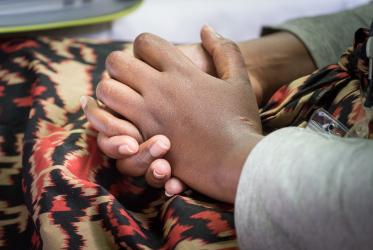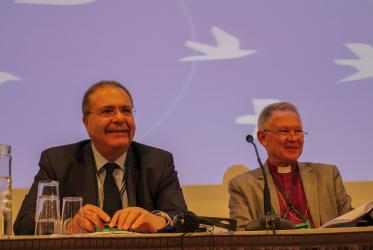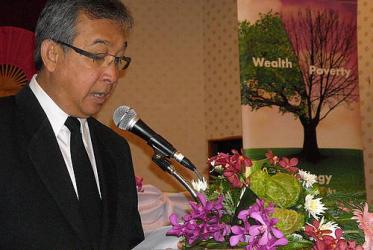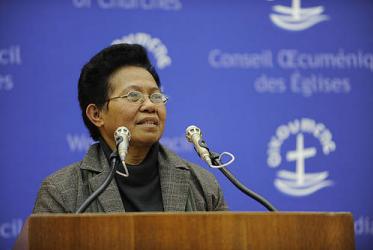Displaying 1 - 20 of 21
WCC offers input to the UN New Agenda for Peace
13 April 2023
WCC honoured with Geneva Engage Award
01 February 2022
Sudanese church leaders express hope that new pact will end war
08 October 2020
“Arusha Call to Discipleship” issued
13 March 2018
Religious leaders of many faiths talk peace in Assisi
21 September 2016
Is there hope for the Middle East?
25 June 2016
WCC calls churches to speak against corruption
20 August 2013
Tveit reports on churches’ work for justice and peace
29 August 2012
Churches in Colombia support victims of land dispute
30 April 2012
Building peace in solidarity with the poor
12 September 2011
Challenge injustice and violence to find unity
07 June 2011
Resettlement due to climate change on Asia-Pacific church agenda
11 November 2009
The violence of manual scavenging in India
15 October 2009
IEPC plans practical approach to peace
28 August 2009

















